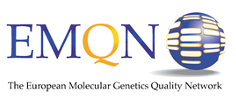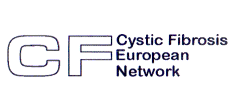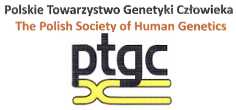
Genetic Tests
Genetic Tests
Genetic heritage
Every Human's Genome contains 23 chromosome pairs, which in turn hold approximately 23,000 genes. All of us inherit two copies of most genes, one from the mother and the other from the father, with the exception of the genes located on the X and Y chromosomes in men. That is why many of our characteristics resemble those of both our parents.
Whether the information contained in them in the form of DNA is correct or not conditions our life, the development of diseases, our susceptibility to them as well as the way we respond to medication (pharmacogenomics), and finally our chances of having healthy offspring. Genetic information determines many of our characteristics, such as the color of our eyes, blood group or height.
There are roughly 7,000 genetic diseases. It is estimated that every person carries about 6 mutations (DNA sequence defects) that are pathogenic (cause diseases). Mutations may trigger the development of a genetic disorder when a gene fails to provide the organism with correct instructions. The presence of alterations and mutations in the human genome can be verified by means of genetic testing.
Genetic tests offered by NZOZ Genomed are performed using an ultramodern DNA sequencing technique. Genomic sequencing can make it possible to determine whether there are alterations (mutations) in a given gene or chromosome which are connected with known genetic disorders. NZOZ Genomed's genetic testing offer is one of the widest in the market. It includes whole-genome sequencing (WGS) - the most advanced and comprehensive method of genetic testing.
The genetic tests offered by NZOZ Genomed are performed using an ultramodern DNA sequencing technique. Genomic sequencing can make it possible to determine whether there are alterations (mutations) in a given gene or chromosome which are connected with known genetic disorders. NZOZ Genomed's genetic testing offer is one of the widest in the market.
The most frequent reasons for performing genetic testing:
Whether the information contained in them in the form of DNA is correct or not conditions our life, the development of diseases, our susceptibility to them as well as the way we respond to medication (pharmacogenomics), and finally our chances of having healthy offspring. Genetic information determines many of our characteristics, such as the color of our eyes, blood group or height.
There are roughly 7,000 genetic diseases. It is estimated that every person carries about 6 mutations (DNA sequence defects) that are pathogenic (cause diseases). Mutations may trigger the development of a genetic disorder when a gene fails to provide the organism with correct instructions. The presence of alterations and mutations in the human genome can be verified by means of genetic testing.
Genetic tests offered by NZOZ Genomed are performed using an ultramodern DNA sequencing technique. Genomic sequencing can make it possible to determine whether there are alterations (mutations) in a given gene or chromosome which are connected with known genetic disorders. NZOZ Genomed's genetic testing offer is one of the widest in the market. It includes whole-genome sequencing (WGS) - the most advanced and comprehensive method of genetic testing.
The genetic tests offered by NZOZ Genomed are performed using an ultramodern DNA sequencing technique. Genomic sequencing can make it possible to determine whether there are alterations (mutations) in a given gene or chromosome which are connected with known genetic disorders. NZOZ Genomed's genetic testing offer is one of the widest in the market.
The most frequent reasons for performing genetic testing:
- A physician suspects a genetic disease and would like to confirm the diagnosis.
- There is a genetic disorder in your family. You would like to know if you carry the same mutation, the extent of the risk you are at of developing the disease yourself in the future or the odds of transmitting the ‘faulty’ gene to your offspring.
- You, your relative, partner or a member of his or her family is suffering from a genetic disorder which could be passed on to your children.
- Other kinds of examinations you underwent during a pregnancy (such as ultrasound, nuchal translucency screening and blood tests) indicated a heightened risk of your child’s being affected by a congenital disease.
- Previous pregnancies (with the present partner or other partners) ended in miscarriages or stillbirths.
- A specific type of tumor occurred in the family.
- There is a heightened risk of having a child suffering from a congenital disorder by reason of one’s ethnic background. Examples include sickle-cell anemia in people of Afro-Caribbean origin, beta thalassemia in people of Mediterranean origin, cystic fibrosis in Europeans or Tay-Sachs disease in Ashkenazi Jews. More common within the scope of specific ethnic groups, these diseases may affect others as well.








